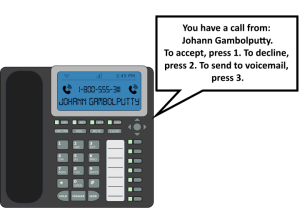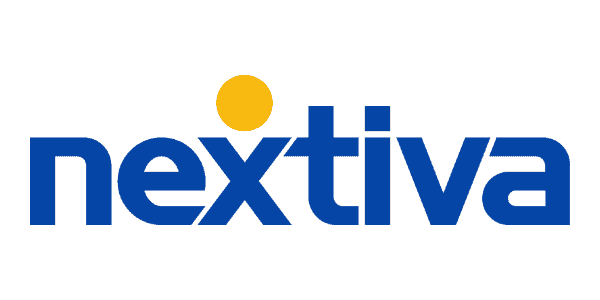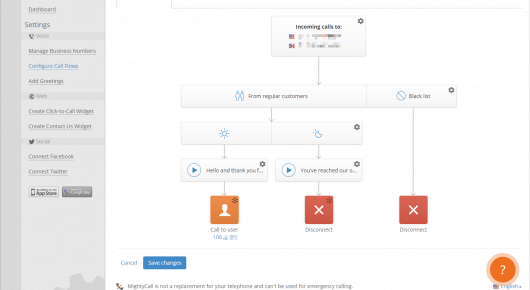 Whether your business takes hundreds of callers each day or only a handful from prospective clients, the importance of how those calls are handled is essentially the difference between success or failure as a company. For this reason, many businesses simply ignore or block calls from unknown or hidden numbers. Despite an understandable method, this approach could ultimately lead to missing important calls – a grave mistake if you want to maintain a solid reputation. Thankfully, however, not all calls have to necessarily be blocked as call screening can take care of unwanted calls more effectively while also giving VoIP users another level of control over their phone systems.
Whether your business takes hundreds of callers each day or only a handful from prospective clients, the importance of how those calls are handled is essentially the difference between success or failure as a company. For this reason, many businesses simply ignore or block calls from unknown or hidden numbers. Despite an understandable method, this approach could ultimately lead to missing important calls – a grave mistake if you want to maintain a solid reputation. Thankfully, however, not all calls have to necessarily be blocked as call screening can take care of unwanted calls more effectively while also giving VoIP users another level of control over their phone systems.
Is Call Screening Better Than Call Blocking?
Although both call screening and call blocking have the same purpose – to filter incoming calls – there are a few key differences. Call blocking, as its name suggests, is a feature that blocks calls originating from unwanted callers and directs them to voicemail or by playing the busy tone each time a call attempt is made to you by them. Call screening, on the other hand, is a more sophisticated way of filtering since it provides virtual phone system users more call handling options, allowing them to accept calls, transfer them, or send them to voicemail. And since the caller’s number or ID is displayed on the phone’s screen, all it takes is a single glance to decide the fate of an incoming call, which is a huge asset in separating important calls from those that can be answered later or ignored completely.
However, this is not the only reason why call screening is better than call blocking. In fact, call screening can be used in tandem with call announcing, a brilliant feature that requires callers to announce their names and their reason for calling. This way VoIP users can simply differentiate between the calls of business partners with hidden phone numbers and unwanted callers that are hiding their caller IDs. Call announcing is another helpful way of maintaining a continuous workflow, too, since you won’t even have to take a look at the phone’s screen, instead simply listen to the caller’s message and then decide what should be done with the call.
Finetuning to Perfection
While call screening is an effective way to improve the productivity of VoIP users, the feature in itself isn’t enough to make sure only important calls get through the phone system’s filter, there will need to be some finetuning first.
Should All Calls Be Announced?
Call announcing shouldn’t be applied to all callers, especially in cases where the phone number or the caller ID is properly screened by the phone. Instead, the best approach is to require only those callers whose phone numbers are either hidden or haven’t yet been saved to the contact list.

Blocking Calls Wisely
While it’s understandable that hidden callers are frustrating, blocking anonymous calls completely should be avoided as there may be business partners looking to contact you via unknown phone numbers. Thankfully, turning on call announcing as part of the call screening process can help identify clients with hidden numbers, preventing their calls from being sent to voicemail. When the phone number is displayed by the system, though, it’s up to you whether the caller’s number should then be saved to the contact list or be blocked for good.
A Better Alternative to Busy Signals
One of the best things about cloud phone systems is that they often feature an auto attendant, which can be customized to your liking to determine the right extension for a caller or change the default greeting that they will hear. However, VoIP is more than capable of handling more than one greeting, including temporary ones. In fact, in most cases there is an option to set up the system in such a way that if no answer is given to the call, then it automatically reads your message out and explains to callers that they will be contacted at a later time. This way you can ensure that callers will receive a prompt answer even when you are too busy to answer calls.
Best VoIP Systems of 2024
| Rank | Provider | Info | Visit |
|
1
|
Editor's Choice 2024
|
|
|
|
2
|

|
|
|
|
3
|
|
|
Get the Best Deals on Virtual Phone Systems
Our monthly newsletter delivers the latest virtual phone systems deals, trends and reviews directly into your inbox.

Share Your Comment